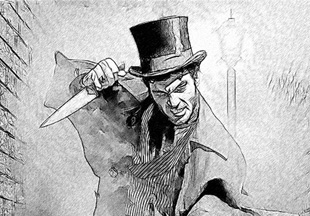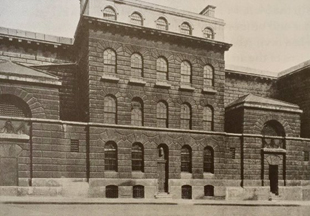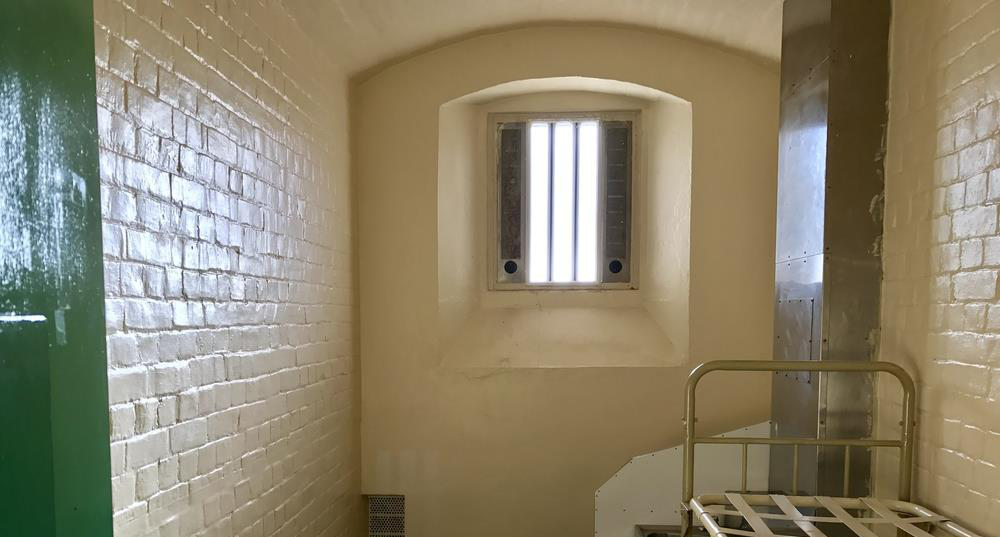Robert Mann
The Jack the Ripper murders have continued to pique public interest, even more than 100 years after the killings. The U.S. FBI completed a comprehensive psychological profile on the killer in 1988, which used modern agency tactics, and determined that we can be reasonably sure that the killer fit the following description:• White male with a low social standing
• Had a broken home life
• He likely had a menial job such as a butcher or medical examiner's assistant
• It's probably that he spent a lot of time alone, and therefore was socially inept
• Lived or worked in the Whitechapel district, where the murders took place
• His mother could have been an alcoholic
Even though more than 100 names have been suggested by police, experts, historians and ripperologists, the mystery has not been solved. After examining the profile, M. J. Trow, a well-known author and historian, began to investigate a name that had never before been suggested as a possible suspect. In 2009, M.J. Trow officially suggested the name of Robert Mann, a mortuary attendant.
There isn't much information about Robert Mann in official records, since he wasn't considered a suspect during the investigation. However, his name does appear in some of the statements given by mortuary employees. In fact, Robert gave a statement about his presence at the Annie Chapman inquest, which described his duties in relation to her body. It appears as if he worked simply as a watchman in the mortuary, since he was generally not allowed to touch the bodies. This fits the FBI profile, since he most likely spent a good portion of his shifts alone, except for the deceased.
Based on Robert's background as a very poor, potentially illiterate resident of a workhouse, many experts believe that the humiliation that he must have suffered, along with a sketchy upbringing, might have led him to turn into a serial killer. In addition, investigators noted strange behaviour in Robert when the bodies of a few of the victims were present. For example, once he was specifically told not to touch a body, and he did anyway, presumably to admire his "handywork". He also suffered "fits", according to his immediate supervisor.
We might never know for sure if Robert was the murderer. In 1896, he died of pthisis, known at the time as consumption. We now know the disease as tuberculosis.







Comments
Tom Brock
01 Jul 2020 03:33if this information is to be believed,then Robert Mann could not have been the murderer,,it is stated that he was potentially illiterate if this was so then he could not have written any of the letters sent to the police ( accepting that some were hoaxs ) as far as a police profile is concerned,it is easy after the fact to make any profile fit an individual,manipulating words and circumstance to fit an individual
Paul Daniels
04 Nov 2021 05:35A decent potential suspect. I highly doubt that the real killer wrote any such notes.
David Charles Fallon
18 Nov 2021 03:09Robert Mann is a good suspect, but equally so is Joseph Barnett. Robert was 10 years old when his father died, Joseph was 6 when his father passed. Both of their mothers left their families after their husband's deaths. Mann died at age 61, Barnett died at age 68, both men's passing due to tuberculosis. Though their work lives were different, these similarities do give one pause for thought.
Steve J
03 May 2023 23:49Best thing you can say about this guy being JTR is that he's not as daft a suspect as prince albert victor/walter sickert/Lewis Carroll/Sir Arthur Conan Doyle/William Gull/James Maybrick.